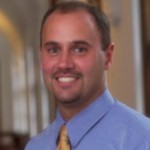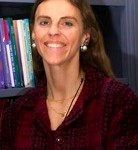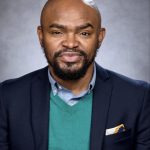Lab Directors

Keith Bellizzi, PhD, MPH (Co-Director of Lab)
keith.m.bellizzi@uconn.edu | Google Scholar Profile | ![]() @bellizzikeith
@bellizzikeith
Keith Bellizzi, PhD, MPH is a Professor of Gerontology at the University of Connecticut. A multidisciplinary trained gerontologist, behavioral health scientist and public health epidemiologist, he is an international expert in resilience, healthy aging, cancer survivorship, and behavioral change. Motivated by his own personal experience with cancer, he has dedicated the last two decades to improving the lives of individuals with cancer and their families. His most recent work focuses on mechanisms and outcomes of resilience trajectories in adults with cancer, as well as using electronic health records and patient portals to create frailty risk profiles to help clinicians make more informed treatment decisions for older patients. He is also working on a project examining social determinants of accelerated aging in diverse population of cancer survivors. His work is funded by the National Institutes of Health and non-profit cancer organizations. Dr. Bellizzi’s research has been featured in U.S. News and World Report, The Washington Post, The Los Angeles Times, Australian Financial Review, Psychology Today, and many other media outlets.
 Crystal Park, PhD (Co-Director of Lab)
Crystal Park, PhD (Co-Director of Lab)
crystal.park@uconn.edu | Spirituality, Meaning, and Health Lab | Google Scholar Profile
Crystal Park, PhD, is Professor of Clinical Psychology. She studies multiple aspects of appraisal, coping and recovery following stressful events, including cancer and other serious illness, trauma, and bereavement. Her work focuses on better understanding the roles of religiousness and spirituality and efforts to make meaning. She is also studying yoga interventions for stress and pain, aiming to identifying underlying mechanisms of action. She is co-Author of Empathic Counseling: Meaning, Context, Ethics, and Skill and Spirituality, Meaning, and Trauma (both from APA) and Editor of the APA journal Psychology of Religion and Spirituality. At UConn, she maintains an active research lab of graduate and undergraduate students and teaches health psychology at both the graduate and undergraduate levels.
Faculty Investigators

Candi Nwakasi, PhD
Dr. Candi Nwakasi is an Assistant Professor with a focus on Aging and Gerontology at the Department of Human Development and Family Sciences, at the University of Connecticut. Trained as a gerontologist and public health professional, Candi’s research is broadly focused on understanding and examining sociocultural and psychosocial factors that influence the health and well-being of marginalized people as they age. His interests include cancer survivorship in disadvantaged populations, cognitive health and decline, and health care and support access in older and disadvantaged populations. He has received multiple funding for his work including one from NIH, through the Rhode Island IDeA Network of Biomedical Research Excellence (RI-INBRE), to evaluate cancer survivorship in Blacks and Latinx in Rhode Island. He is a co-founder of Black in Gerontology and Geriatrics, a 2023 Black Men’s Brain Health Fellow, and serves as a member of the editorial board of the Journal of Aging Studies. He hopes to use his work to inform tailored, equity-based, culturally relevant care and interventions.

Amanda Denes, PhD
amanda.denes@uconn.edu | Google Scholar Profile
Amanda Denes, PhD, is an Associate Professor in the Department of Communication at the University of Connecticut. Her work aims to identify communication practices in close relationships that contribute to people’s physical, psychological, and relational health. Much of her research focuses on communication processes related to maintaining successful relationships and the role of biology in understanding communication behavior. Most recently, she has been exploring couples’ cancer experiences, with the aim of identifying forms of communication that contribute to partners’ well-being when managing the relational and sexual changes that accompany cancer and its treatment. Her research is regularly featured in media outlets such as Women’s Health Magazine, Newsweek, and Psychology Today. She has been recognized for her work with a Fulbright U.S. Scholar Award from the Australian-American Fulbright Commission and the Early Career Award from the Interpersonal Communication Division of the National Communication Association. She also serves as the Editor of Communication Reports and a Co-Editor of The Oxford Handbook of the Physiology of Interpersonal Communication.

Maurade Gormley, PhD, CPNP
Maurade Gormley, PhD, CPNP is an Assistant Professor at the University of Connecticut School of Nursing. Building upon her experience as an oncology nurse, Dr. Gormley’s research aims to optimize the psychosocial health and well-being of cancer survivors as they face the unique challenges of a cancer diagnosis. Dr. Gormley’s doctoral work, funded by an F31 (F31NR017547) National Research Service Award (NRSA), examined the psychosocial response to genomic testing used to predict the risk of recurrence and benefit of adjuvant chemotherapy among breast cancer survivors. Her current research aims to better understand the mechanisms and pathways that may contribute to racial disparities in breast cancer mortality, such as the physiologic response to stress over the life course. She is seeking funding to develop an intervention aimed to promote culturally informed, adaptive coping in the survivorship period. Dr. Gormley completed the Provost Postdoctoral Fellowship Program at New York University with additional training at the Summer Genetics Institute (NINR) and Research Methods in Supportive Oncology at the Harvard Medical School for Palliative Care (NCI).

Thomas Blank, PhD (Emeritus)
Dr. Blank is a Professor (Emeritus) of Gerontology at the University of Connecticut. Trained in psychology and social gerontology his research examines psychological and social aspects of cancer. After 26 years at UConn, he retired in 2014, but continues to be actively involved in research on cancer survivorship. Current and former focus areas, include cancer and couple dynamics, prostate cancer and masculinities, gay men and prostate cancer, and pathways to psychological growth after cancer. His work has been funded by the National Institute on Aging and the Lance Armstrong Foundation. He is widely published in high impact cancer-specific outlets, such as Cancer, Journal of Clinical Oncology, behavioral medicine outlets, such as Health Psychology, Annals of Behavioral Medicine and Sexuality Research and Social Policy. He is a long-term survivor of prostate cancer and continues to be active in research, policy, and advocacy.
Collaborators
Associate Professor & Medical Director of Adult Survivorship for Yale Cancer Center, Yale University
Ofer Harel, PhD
Professor, Statistics, University of Connecticut